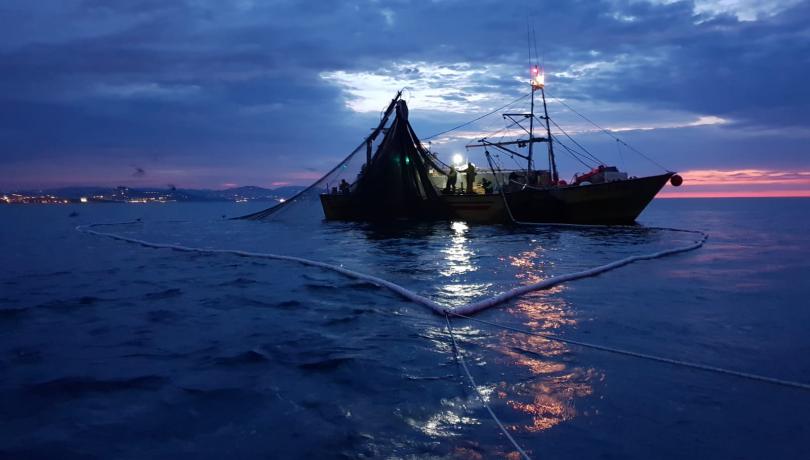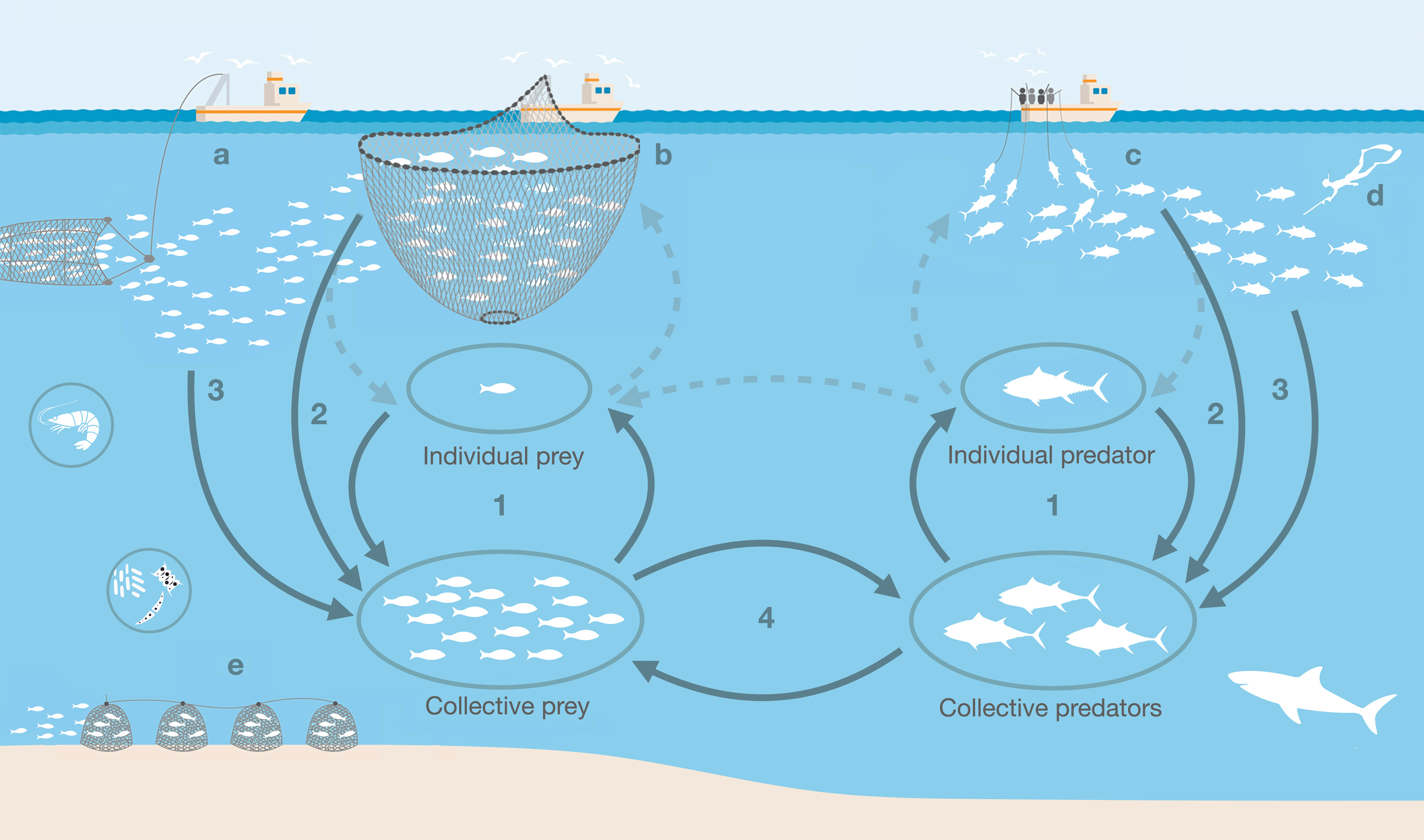A new study led by the Institut de Ciències del Mar (ICM) and the CREAF highlights the effects of fishing on the dynamics of fish populations and, therefore, on fisheries.

A new study led by researchers from the Institut de Ciències del Mar (ICM) and CREAF, both Severo Ochoa research institutes of excellence in Barcelona, and in collaboration with the Leibniz-Institute in Berlin, has raised attention about the consequences of fishing on the shoaling behaviour of fish species with strong commercial and recreational value, which can have a major impact on population dynamics and, therefore, on fisheries.
Specifically, the work, published today in the prestigious journal Trends in Ecology and Evolution and suggests that fishing activity may decrease the shoaling behaviour of fishes. This can have far reaching consequences because shoaling behaviour is used by fish to minimise the risk of predation, acquire resources more easily, and transfer and acquire information efficiently.
Changes in population dynamics
According to the authors, these effects can negatively affect both the ecology of exploited species and the ability of fishers to detect and catch the fish, thus altering the socio-economic dynamics of the commercial and recreational fishing sector.
"Fish behaviour plays a fundamental role in fisheries ecology, but it is not yet well integrated into conservation and management strategies. With our work we want to promote new studies that allow us to better understand the mechanisms driving fisheries-induced changes of shoaling behaviour in order to find the most efficient solutions for managing exploited species", explains Valerio Sbragaglia, ICM researcher and first author of the study.
According to the study, the alterations in shoaling behaviour derived from fishing can affect many species: from those obligated to group together to survive, as is the case of small pelagic fish, to large predators such as tuna, which often move and hunt in groups. This is particularly relevant given that small pelagics and tuna play a key role in marine food webs and support much of the world's fisheries.
Selective harvesting of individual phenotypes
One of the mechanisms through which intensive fishing can affect the collective behaviour of fish is through the selective harvesting of individual phenotypes. "For example, smaller and shyer fish are more vulnerable to fishing, and selective fishing of these individuals can modify the dynamics by which shoals of fish are formed, with important repercussions for the functionality of the food web", details in this sense Marta Coll, ICM researcher and co-author of the study.
From his part, Jolle Jolles, CREAF researcher and co-first author of the study, adds that “The composition of fish schools, and animal groups more generally, is known to have strong effects on group-level patterns and decisions. Therefore, alterations of the composition of fish schools, such as due to fishing, may have large repercussions on the social cohesion, coordination, and thereby anti-predator benefits of schooling”.
Another conclusion of the study is that changes in the shoaling behaviour of fish may give them an evolutionary advantage in adapting to intensive fishing and be less vulnerable to fishing gear. Fish could thereby potentially partly overcome the negative effects of fishing, but at the same time this could diminish their ability to react appropriately to natural predators, which according to the authors, this is what may actually already be happening to small pelagic fish and tuna in the Mediterranean Sea, where fishers are reporting strong changes in small pelagics behaviour in the presence of tunas.
For future research, the team hopes to be able to analyse in more detail the impact of fishing on highly exploited fish stocks in order to be able to introduce these processes into ecological and fisheries management models.
